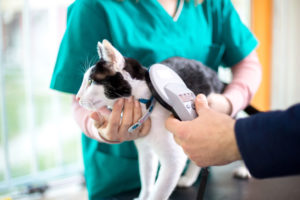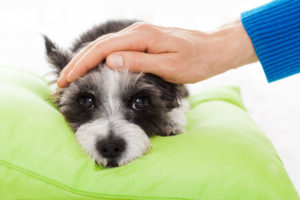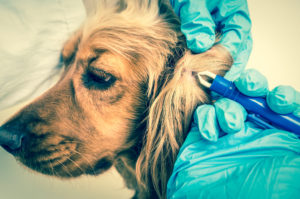3 Facts You Should Know About Acupuncture For Animals
 Acupuncture continues to grow in popularity in America, as men and women seek natural and holistic treatment options for their health problems. But humans aren’t the only ones who can benefit from the ancient art of acupuncture! This practice is even being used on animals! Here’s what you should know if you’re curious about the benefits and safety of acupuncture for your own family pet.
Acupuncture continues to grow in popularity in America, as men and women seek natural and holistic treatment options for their health problems. But humans aren’t the only ones who can benefit from the ancient art of acupuncture! This practice is even being used on animals! Here’s what you should know if you’re curious about the benefits and safety of acupuncture for your own family pet.
What is Acupuncture?
Acupuncture has been practiced since the days of the days of the ancient Chinese. Tiny needles are inserted into specific parts of the body to produce a healing response.
This practice identifies precise points on the body and stimulates them for a certain amount of time. The stimulation achieved through acupuncture makes changes to the central nervous system that can relieve pain and resolve other existing problems.
How Can Acupuncture Be Used For Your Pet?
Known as veterinary acupuncture, the process is used the same way it is on humans. The conditions that respond most effectively to acupuncture include musculoskeletal, respiratory, skin, and gastrointestinal problems. This means that anything from arthritis, nerve injury, asthma, and dermatitis can potentially be resolved using acupuncture, sometimes in tandem with other mainstream treatments.
Since acupuncture essentially helps the body heal itself by creating specific physiological changes, this can be a powerful tool for vets and pet lovers alike. It is one of the very safest forms of medical treatment for animals, and side effects are very rare. It goes without saying that only a licensed veterinarian is qualified to complete animal acupuncture Read more










